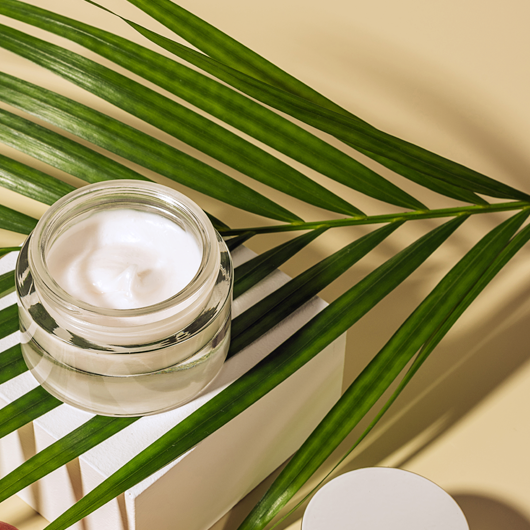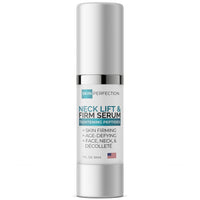Acai Fruit
Acai Berry Benefits for Skin: The Amazon Berry That Restores and Revitalizes

Scientific Name: {Euterpe Oleracea}
Common Name: {Acai, Acai Berry, Palm Berry, Assai palm}
INCI: {Euterpe oleracea Fruit Oil}
What Is the Acai Berry?
Scientific Name: Euterpe oleracea
Common Names: Acai, Amazon Berry, Palm Berry, Assai Palm
INCI: Euterpe oleracea Fruit Oil
The acai berry, often called the Amazon berry, is a small, dark-purple fruit native to the Amazon rainforest. Related to blueberries and cranberries, this superfruit goes beyond nutritional value—it is also widely celebrated in skincare for its antioxidant properties and ability to support radiant, healthy-looking skin.
Packed with vitamins, minerals, proteins, calcium, potassium, and essential fatty acids, acai berries have been studied for their role in supporting overall wellness. But beyond internal health, acai benefits extend to restoring and rejuvenating the skin.
Antioxidant Power: Fighting Free Radicals
One of the most valuable acai berry benefits for skin comes from its rich antioxidant content. Acai is high in vitamins A, C, and E—nutrients that help neutralize free radicals caused by sun exposure and environmental pollutants.
Free radicals can contribute to the appearance of fine lines, wrinkles, and dullness. By protecting the skin against oxidative stress, acai berries help maintain a smoother, more youthful-looking complexion.
Restoring and Rejuvenating the Skin
Acai is often called a natural acai restore ingredient for its ability to support skin vitality. Here’s how:
-
Boosts Circulation: Increased blood flow can improve skin tone, brighten dull areas, and help reduce the appearance of dark spots.
-
Supports Collagen Production: Acai nutrients encourage elastin and collagen regeneration—essential building blocks for plump, firm-looking skin.
-
Encourages Cell Turnover: Helps refresh the surface layer of skin, revealing newer, healthier cells.
Hydration with Essential Fatty Acids
Acai berries are a source of oleic acid and essential fatty acids, which work as natural moisturizers. These lipids penetrate deeply into the skin to deliver hydration, reinforce the skin barrier, and improve elasticity. With stronger, more flexible skin cells, the complexion can better retain moisture and resist early signs of dryness or premature aging.
Targeted Benefits for Delicate Areas
The Amazon berry is especially helpful around the under-eye area. Broken capillaries can cause dark, bluish discoloration beneath the eyes. By supporting circulation and helping clear away lingering particles, acai may reduce the look of under-eye shadows and restore a refreshed appearance.
Why Include Acai Berries in Skincare?
When used in topical formulations, acai extract and acai berry oil bring together antioxidants, vitamins, and fatty acids to:
-
Support a radiant, glowing complexion
-
Hydrate and soften dry skin
-
Improve the appearance of uneven skin tone
-
Promote smoother, plumper-looking skin
From daily moisturizers to serums, acai is a versatile addition to modern skincare routines.
The Restorative Power of the Amazon Berry
The acai berry benefits for skin are wide-ranging—from antioxidant protection to deep hydration and collagen support. Known as the Amazon berry, this small fruit delivers powerful nutrients that restore and revitalize skin’s natural glow.
Incorporating acai into skincare is more than a trend—it’s a way to tap into one of the Amazon rainforest’s most nourishing treasures.
Often called just Acai, this tiny fruit is dark purple and grows only in the Amazon in South America. Though it comes from the same species as the blueberry and cranberry, it has some health benefits that even those amazing berries cannot stack up to!
Acai contains phytochemicals, Vitamins B1, B2, B3, E, and C, calcium, potassium, proteins, and minerals. The Acai berry is rich in vitamins, minerals, and essential nutrients. Therefore, it has garnered the press for its ability to boost weight loss and energy levels, improve heart health, and create a stronger, healthier mind.
The same components that make Acai great for the body also make it great for the skin.
Internal and External Benefits
Acai berries are rich in natural antioxidants, high in Vitamins C and A, which protect the skin from the sun's damaging rays and help capture and neutralize free radicals created by sun exposure and environmental pollutants.
Free radical damage is one of the leading causes of fine lines and wrinkles. Subsequently, applying Acai berries to your skin is a great way to prevent the appearance of these premature signs of aging. 
Acai berry also boosts circulation, making it an excellent ingredient for women with dark spots or other skin discoloration. In addition, it is beneficially applied topically to under-eye circles created by leaking from broken capillaries.
These capillaries deposit colored blood particles in the hollows beneath the eyes, forming a bruised, dark-blue discoloration. Acai berries can increase blood flow to the area, clear away the particles, and mend broken capillaries.
The nutrients in Acai fruit are essential to restoring and rejuvenating the skin. An application product containing Acai can help restore damaged skin.
Plus, it encourages cell turnover and grows new, more vibrant layers of cells for a more youthful appearance. It also promotes the regeneration of elastin and collagen beneath the skin, which can help to fill out and plump the appearance of sunken, wrinkled skin.
Finally, acai berries contain oleic acids, some of the best natural moisturizers on the market. This acid penetrates the deepest layers of skin for exceptional hydration and helps strengthen skin cells, making their walls stronger and more flexible.
They become resilient to premature aging and can retain moisture to keep them hydrated.
References for Acai Berry Benefits for Skin Article
-
Schauss, A. G., et al. (2006). Phytochemical and nutrient composition of the Amazonian palm berry, Euterpe oleracea Mart. (acai). Journal of Agricultural and Food Chemistry, 54(22), 8598–8603.
➝ Foundational study on acai’s antioxidant content and nutritional profile. -
Poulose, S. M., Fisher, D. R., & Bielinski, D. F. (2012). Restorative effects of acai (Euterpe oleracea Mart.) on oxidative stress and inflammation. Aging Research Reviews, 11(2), 244–256.
➝ Demonstrates acai’s antioxidant and anti-aging potential. -
Xie, C., et al. (2011). Açaí juice attenuates atherosclerosis in ApoE deficient mice through antioxidant and anti-inflammatory activities. Atherosclerosis, 216(2), 327–333.
➝ Highlights antioxidant effects, relevant to “fighting free radicals.” -
Del Pozo-Insfran, D., Brenes, C. H., & Talcott, S. T. (2004). Phytochemical composition and pigment stability of açaí (Euterpe oleracea Mart.). Journal of Agricultural and Food Chemistry, 52(6), 1539–1545.
➝ Shows high anthocyanin and polyphenol content. -
Melo, E. A., et al. (2015). Phenolic compounds, anthocyanins, and antioxidant activity in acai (Euterpe oleracea) pulps from different regions. Food Science and Technology, 35(2), 279–284.
➝ Variability in antioxidant strength depending on origin. -
Nahas, R. & Balla, A. (2011). Complementary and alternative medicine for prevention and treatment of the common cold. Canadian Family Physician, 57(1), 31–36.
➝ Mentions acai as a nutrient-rich antioxidant. -
Mayo Clinic Staff. Acai berries: Do they have health benefits? Mayo Clinic.
➝ General health information on acai berries. -
Healthline (Medically Reviewed). What is Acai? Benefits, Nutrition, and More. Healthline. Easy-to-read breakdown of acai’s benefits, good for consumer-friendly linking.
-
WebMD. Acai Berry: Uses, Side Effects, and More.
➝ Widely recognized source for consumer reference. -
National Center for Complementary and Integrative Health (NCCIH). Antioxidants: In Depth.
➝ Context for antioxidants like those in acai berries.



